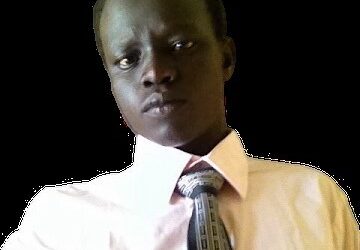By Esther Lohutuhureng
Gorom is one of the refugee settlement areas located within the Central Equatoria State in the Republic of South Sudan. It hosts the refugees who have been seeking a safe haven due to the internal military confrontation that erupted in April 2023 in Sudan. This settlement area hosted most of the Sudanese citizens who had escaped war-torn Sudan. Besides that, it also hosts some of the South Sudanese nationals who have also escaped the war in Sudan.
The presence of both the Sudanese and the other nationals at the settlement area is a clear indicator that anyone can become a refugee, whether one is in a developed country or a developing country. The 1951 Refugee Convention is a key legal document and defines a refugee as someone who is unable or unwilling to return to their country of origin owing to a well-founded fear of being persecuted for reasons of race, religion, nationality, membership in a particular social group, or political opinion. Refugees are people who have been forced to flee their homes and have crossed international borders to find safety in another country.
Sudanese refugees and other third-country nationals arrived in South Sudan, seeking safety and protection following the outbreak of fighting in Sudan in April 2023 between the Sudanese Army and the Rapid Support Forces (RSF).
Sudanese refugees did not choose to be refugees; however, the situation in Sudan forced them to cross internationally recognized borders, seeking safety and protection. By the grace and protection of God, they arrived in Juba, and they were then taken to the Gorom Refugee Settlement, which is located in Juba. Those refugees are tired and in a complex web of confusion because they are in a new country, which is endowed with different cultures besides its unique environment, which most of those Sudanese refugees are not accustomed to.
However, those refugees are facing unfavorable human conditions in the Gorom Refugee Settlement. Some of the unfavorable conditions that the refugees are facing include a lack of proper or inadequate shelter, as well as water, sanitation, and hygiene (WASH) facilities. Some of those refugees have been sleeping under trees for days or even weeks without being given any shelter. Due to their vulnerability, the refugees may resolve to seek shelter under trees, which act as shelter for most of the other refugees who have not secured shelter for themselves. In such a scenario, one tree may offer refuge to several refugees, which may bring both women and men together under the same shelter, which is taboo and not acceptable in Arab Muslim culture. However, the vulnerable refugees are left with no other options but to share whatever is at their disposal, despite their cultural rejection of the act.
The water taps, which are the main sources of water for the settlement, are not enough compared to the population of the refugees. The majority of the refugees are women and children, and these groups heavily use water for different household activities. The shortages of clean water may result in outbreaks of waterborne diseases such as cholera and typhoid, among others.
When those refugees landed in South Sudan and Juba in particular, they were hopeful in every aspect. Those refugees who made it to Juba thought that they were now in a safe environment and that their lives were going to get better. Despite the high hopes they had initially, those who arrived at Gorom Refugee Settlement are, however, confused. The newcomers, who have not secured themselves shelters, are spending their daytime and nights under trees. They claim that they are awaiting registration before they are assigned any decent shelters. However, the duration they will take before they are finally registered and allocated shelters is unknown.
Many of those refugees are traumatized, hungry, and need immediate help from the United Nations (UN) and its humanitarian agencies. Housing units and emergency assistance should be provided immediately following the arrival of refugees in the Gorom Refugee Settlement.
Electricity is one of the essential requirements, which is of equal importance to food and shelter. However, in most cases, humanitarian organizations neglect electricity and focus only on food and shelter. How will they (refugees) be able to charge their mobile phones and other electronic devices, which are essential for communication and keeping them in touch with their family members and loved ones? Communication is important in finding those who might have fled to other areas and reuniting them as time goes by. Since many refugees could not make it to Juba, some might have lost their lives on their way to South Sudan, while others were separated from their family members. All these can make electricity valuable and an urgent need for the refugees.
The UN should give refugees temporary housing immediately upon their arrival because they have suffered enough since April 2023. They did not have rest, nor do they sleep well, and the reason they have come to South Sudan is to escape the war in Sudan.
The UN should grant cash to refugees in order to start afresh and engage in other income-generating activities since they fled their home of origin and lost their sources of livelihood. In addition, it is hard for the refugees to secure jobs. The grant-cash programme would help refugees buy food and non-food commodities that are available in the small market next to the settlement. But due to a lack of money, they could not meet their basic needs. Granting them the cash will enable them to purchase the basic needs for themselves and their families as well.
The author can be reached via Tel: 0921492857; Email: Esther090119@gmail.com




